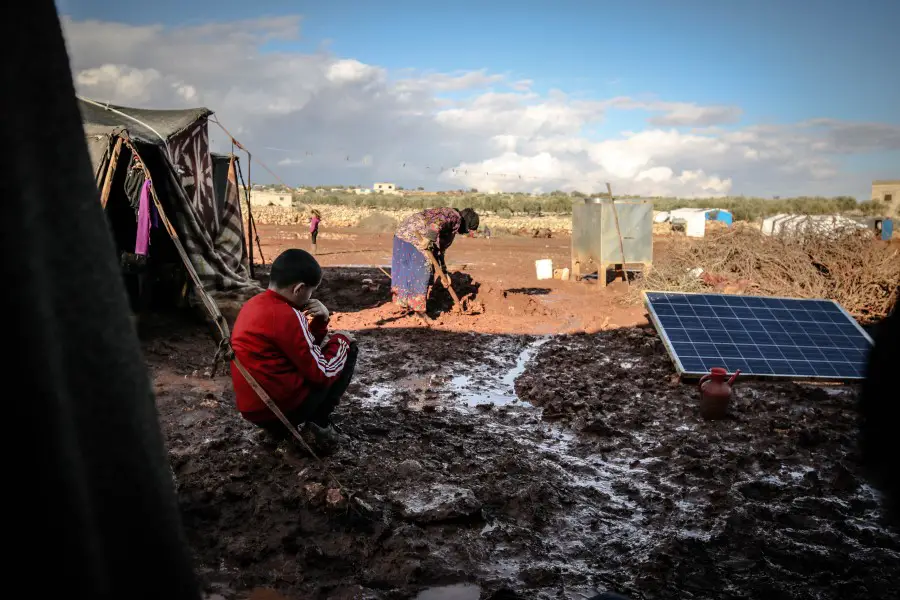This page contains affiliate links. This means if you a follow a link and make a purchase, at no additional cost to you, Humanitarian Careers will receive a commission. Thank you for supporting the site.
NGOs – non-governmental organisations, provide impartial and neutral assistance to people in need around the world. They work in areas of extreme poverty, or provide aid to people impacted by disasters and crises. Most NGOs do good work in difficult contexts. However, too often NGOs fail to deliver quality projects, or to live up humanitarian ideals. So why do NGOs fail? Well, let us explain…
Lack Of Funds
A first reason why NGOs fail is because of lack of funds.
NGOs need to raise money to fund their projects. They are not private businesses, but must rely on donations from the public or private enterprises, or grants from large donors. NGOs that do not secure enough funds fail to continue their work.
In order to receive donations from the public, NGOs must continuously raise their profile and communicate widely about their work and achievements. If an NGO cannot keep public support, or is hit by scandals that destroy public trust, they will be unable to raise funds and can fail.
Most NGOs receive the majority of their funding from large institutional donors such as the UN, EU or national governments. NGOs must continuously submit proposals and bid for funding in order to receive these grants. Any NGO that is unsuccessful in proposing for grants, or is black-listed by major donors, is highly likely to fail.
Poor Coordination
A second reason why NGOs fail is because of poor coordination.
When disasters hit a community, or in an area with widespread extreme poverty, many NGOs come to work. NGOs need to coordinate their activities in order to avoid duplication, but also to ensure that there are no gaps in their response. When NGOs do not coordinate properly, often they fail to fully meet the needs of the people they are serving.
Poor coordination between NGOs not only means that efforts are duplicated or areas missed, but also that financial and material resources are not effectively used. For NGOs to succeed they must work together and coordinate across the range of issues – from geographical locations and logistics, to human resources and engaging with the authorities. If NGOs do not work together and coordinate on issues such as these, they are at risk of failing.
Blocked By Authorities
A third reason why NGOs fail is because their work is blocked by the authorities.
In many of the contexts in which NGOs work they must engage closely with local authorities. This may be government entities or armed forces, or rebel militia and armed groups. NGO access is a challenge in many places where humanitarian work is done. It is vital that NGOs are able to reach the communities they serve. If NGOs are blocked by the authorities, their projects can fail.
There are a range of ways that authorities can block NGO access. Registration and movement permits are commonly needed in many humanitarian contexts. Visas, import licenses and levies are also often needed and these can also cause delays or blockages by authorities. NGOs work hard to overcome access challenges, but when they cannot, their work often fails.
Another way that authorities can interfere with an NGOs work is by insisting they work only through pre-selected local partners. NGOs must remain independent and be able to make their own choices on how they assist people. Any lack of independence goes against the core humanitarian principles and is a red-line for many NGOs. If an NGO cannot negotiate with authorities and remove this interference, they will often withdrawal their presence.
Mismanagement
Another reason why NGOs fail is because of mismanagement.
Like all organisations, NGOs need strong management processes in order to succeed. This can cover everything from internal communications to financial systems. NGOs that are mismanaged, especially for prolonged periods of time, are more likely to fail.
Recruitment is also key for NGOs to avoid management issues. Being able to hire the right people, with the skills and experience needed, is vital for all NGOs. Being able to retain senior-level staff, as well as empowering managers to make decisions, is also key to avoiding NGOs failing to deliver their projects.
Bad management culture can also cause NGOs to fail. Scandals, or corruption, at senior levels can mean an NGO loses public support, or get black-listed by funding donors. The management systems, as well as the way an NGO is managed, are key to prevent it failing.
NGO Online Courses
If you want to know more about NGOs, we highly recommend the online course Introduction to NGO Management. It goes over how NGOs operate and introduces students to the unique aspects of the NGO sector. Follow the link for more information.
Another online course we highly recommend for those wanting to know more about NGOs is How To Design and Fund International Development NGO Projects. Anyone working for an NGO needs a basic understanding of how NGO projects are set-up, and how to input to funding proposals. Click the link to get more information on the course.
If you are looking to work for an NGO, we highly recommend the online course International Humanitarian and Development Careers. We think it provides one of the best overviews of the NGO sector and gives a clear breakdown of the skills needed to get an NGO job. It also provides valuable information on how to successfully apply for positions within NGOs. Click the link to be taken to the course’s page.
Bad Governance
One reason why NGOs fail is because of bad governance.
An NGOs governance is the systems and processes used to determine how the organisation is controlled and acts. It also covers the internal regulations designed to protect not only the financial and material resources of an NGO, but also the people who work for it and receive assistance from it.
Bad governance is a major risk to NGOs. Organizations that cannot govern themselves effectively are open to mismanagement, as well as abuses of power and scandals. An NGO plagued by bad governance is highly likely to fail.
Corruption is one outcome of poor governance. An NGO that lacks the checks and balances, as well as the divisions of power, needed to avoid corruption, are at risk of failing. Fraud and nepotisms are other examples that can thrive in an NGO that doesn’t have a strong governance culture.
Governance is key to any organization succeeding. This is especially true of NGOs.
Contextual Changes
A further reason why NGOs can fail is because of shifts in the contexts in which they operate.
NGOs work around the world assisting people affected by conflicts, poverty and disasters. As a result, the contexts in which NGOs work are highly volatile. NGOs must contend with security and safety risks that can impact their staff and beneficiaries, and disrupt their operations. Major shifts in an operating context can cause an NGOs projects to fail.
There are almost unlimited turns of events that can happen within a humanitarian context that can result in an NGOs work failing. Although often deterioration in the contexts NGOs work in may reduce access, or force the NGO to depart a region or country, changes in donor funding, or even improvements to the context can also change how an NGO works.
Although NGOs cannot control the contexts in which they work in, they must prepare and develop contingency plans for contextual changes, if they are to avoid failure.
Lack Of Acceptance
A final reason for why NGOs fail is because of a lack acceptance.
NGOs must be accepted by the communities they serve. The fact that NGOs almost always come from outside a community, or even from abroad, and deliver services, means that acceptance is vital for their projects to succeed. NGOs that are not accepted by the community will fail.
A key aspect of humanitarian acceptance is related to security. NGOs that have good acceptance often experience less threats and disruption to their work. Their presence is valued in the community and people see the good work they do. NGOs also provide jobs to local people and stimulate the local economy by purchasing goods and services. However, a lack of acceptance can be a serious security risk to an NGO, it’s staff and beneficiaries. NGOs that do not have acceptance often face security incidents – these can result in them having to leave their projects, which ultimately fail.
If you want to know more about NGOs, explore our page on the top NGO online courses here.





